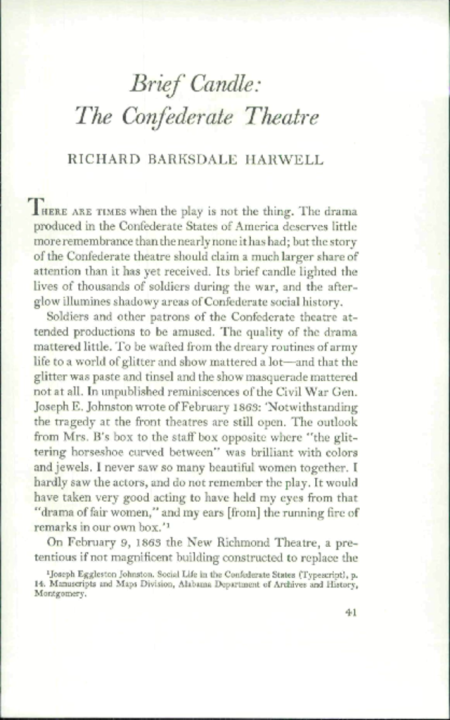The important role played by the Confederate theater in wartime social life deserves much more attention than it has received. Amusement was the chief motive for theater attendance - the quality of the drama produced did not matter. The glitter and glamor of the audience itself helped brighten the lives of countless soldiers, weary with war life. Richmond, with its influx of both soldiers and civilians after becoming the Confederate capital, was the only city in the South besides New Orleans with the patronage necessary for maintaining a professional stage in solvent condition. In other southern cities, such as Mobile, Montgomery, Augusta, Savannah, and Macon (Georgia), there was a great deal of theatrical activity, while Atlanta, Charleston, Wilmington, and certain army camps also witnessed occasional theatrical efforts. Although the coming of the war disrupted performances in all southern cities, the New Richmond Theatre (rebuilt in 1862 after being burned down) produced more than 400 different plays (61 of which were purportedly "original" productions) before the end of the war. Includes a "Calendar of Performances" at Richmond theaters, 1861-65, as well as a repertory of the Richmond Theatre Company and an index of personal names in the repertory. Based on primary and secondary sources; 4 illus., 96 notes.
Brief Candle: The Confederate Theatre.
Publication Date
Volume
81
Part
1
Page Range
41-160
Proceedings Genre
